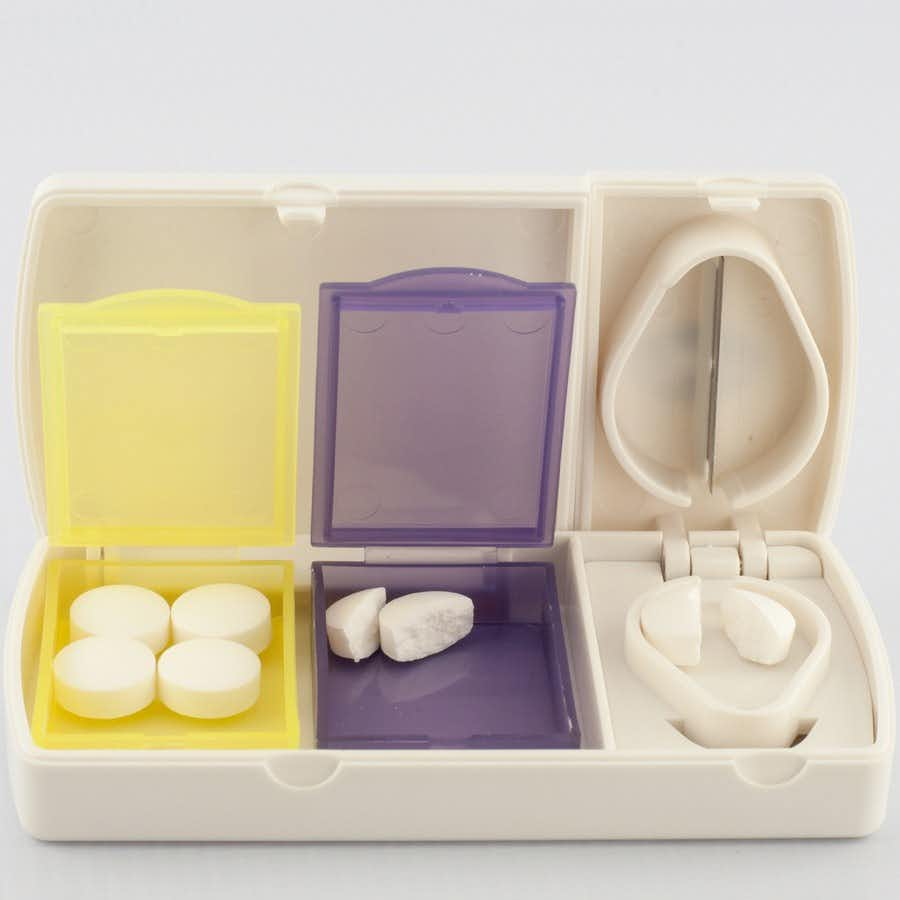
How important is the dose your doctor prescribes? If it matters, patients should be encouraged to take exactly the prescribed dose. The perverse incentives of the pharmacy business sometimes lead doctors to encourage patients to break pills in half. The result is that they pay half as much for the medication. Alternatively, they pay the same amount but the prescription lasts twice as long. But does splitting pills result in people taking the wrong dose?
The Problems with Splitting Pills:
Q. I am a retired ER physician. I have fought a battle for 20 years to stop pill splitting. This is often what managed care organizations like Kaiser and the VA use as a cost-containing strategy.
If dose means anything, this practice should be abandoned: the pieces are not even close to exact halves. This variation in dose can harm patients.
Why People Split Pills:
A. Splitting pills has often been recommended as a way to save money. That’s because the higher dose is frequently priced about the same as the lower dose. For example, the cholesterol-lowering drug pitavastatin (Livalo) costs about $300 a month whether you get it as a 2 mg tablet or a 4 mg tablet.
Are the Two Pieces Halves?
One study of pill-splitting found that volunteers who cut hydrochlorothiazide tablets in two pieces ended up with almost half of the pieces of this diuretic the wrong size (Pharmacotherapy, Jan-Feb. 1998). Researchers in Switzerland concluded that scored tablets are not always designed to be split (Swiss Medical Weekly, Feb. 27, 2010). In some cases, the scoring appears to be decorative rather than functional.
An FDA study found that the thyroid drug levothyroxine should not be cut even when tablets are scored (AAPS PharmSciTech, Sept., 2010). Tablets of the brand-name drug Synthroid are scored, but this is considered a dose-critical drug. So variation in dose caused by uneven pill breakage could pose problems for patients.
Surprisingly, a Dutch study found that hand breaking tablets was more accurate than using a pill splitter (International Journal of Pharmaceutics, May 15, 2014). So it seems that pharmacists and physicians may need to re-think their advice on splitting pills. There may be safer ways for patients to save money on their medicines.

